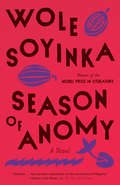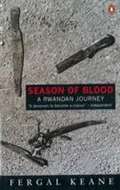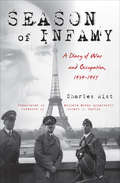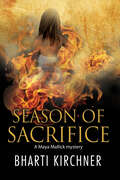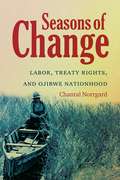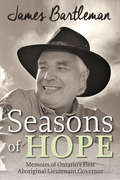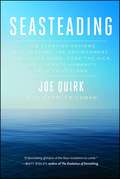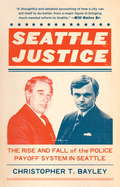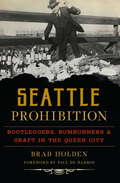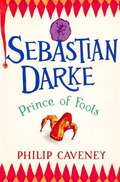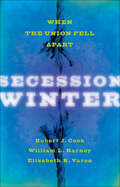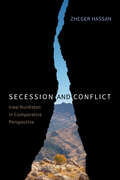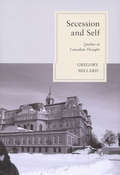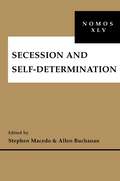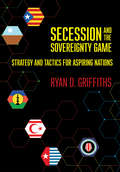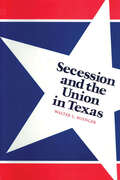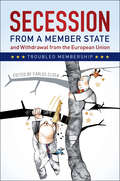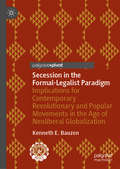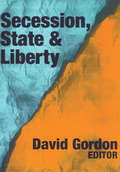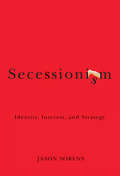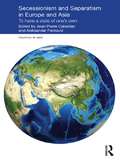- Table View
- List View
Season of Anomy
by Wole SoyinkaFrom the first Black winner of the Nobel Prize in Literature and one of our fiercest political activists—this political novel about the dangers of corruption, greed, and the desire for power is the follow-up to his acclaimed debut novel The Interpreters.An African nation's struggle for independence is interwoven with a tragic love story in this compelling novel. When Ofeyi, who writes advertising jingles for the Cocoa Corporation, is sent on a promotional tour of his unnamed country, he arrives at a coastal village whose remote location has long kept it insulated from the corrupt national government. Here Ofeyi discovers a traditional way of life that is still flourishing and he is inspired to spread its life-affirming values to his suffering country. But challenging the forces of greed and exploitation provokes a horrific response, and when Ofeyi&’s beloved wife goes missing, he must travel across a war-scarred landscape in search of her. Infusing the myth of Orpheus with his signature lyricism and moral profundity, Soyinka creates a dazzling story about the clash between idealism and reality.
Season of Blood: A Rwandan Journey
by Fergal KeaneIn his powerful account of the Rwandan genocide, Fergal Keane rejects the widely held perception that the slaughter was the simple consequence of tribal antagonisms, and instead blames unscrupulous politicians for fomenting ethnic rivalry.
Season of Infamy: A Diary of War and Occupation, 1939-1945
by Charles Rist&“A valuable account of what one significant and perceptive Frenchman experienced during the protracted disgrace of France as a vassal state of Nazi Germany.&” —Publishers Weekly In 1939, the 65-year-old French political economist Charles Rist was serving as advisor to the French government and consultant to the international banking and business world. As France anxiously awaited a German invasion, Rist traveled to America to negotiate embargo policy. Days after his return to Paris, the German offensive began and with it the infamous season of occupation. Retreating to his villa in Versailles, Rist turned his energies to the welfare of those closest to him, while in his diary he began to observe the unfolding of the war. Here the deeply learned Rist investigates the causes of the disaster and reflects on his country&’s fate, placing the behavior of the &“people&” and the &“elite&” in historical perspective. Though well-connected, Rist and his family and friends were not exempt from the perils and tragedies of war, as the diary makes clear. Season of Infamy presents a distinctive, closely-observed view of life in France under the occupation.
Season of Sacrifice: A Maya Malick Mystery (The Maya Mallick Mysteries #1)
by Bharti KirchnerIntroducing feisty Asian-American private investigator Maya Mallick in the first of an intriguing new mystery series. During a morning stroll in Seattle’s Green Lake district, Maya Mallick is horrified to see two young women, shrouded in white, set themselves ablaze in front of the temporary residence of the visiting Chinese foreign minister. She’s even more shocked to recognize one of them: Sylvie Burton, a brilliant Tibetan-American biomedical scientist, who is the adopted sister of Maya’s best friend. An onlooker informs her that the two women are martyrs, protesting the Chinese occupation of Tibet. Yet Maya has a nagging suspicion that all is not as it seems. With so much to live for, why would Sylvie wish to end her life in this horrific way? As Maya gets closer to the shocking truth, she finds her own life on the line.
Season of the Wolf
by Jeffrey J. MariotteSeason of the Wolf is a heart-stopping supernatural thriller about the nature of evil, the evils of nature, and the epic struggle between a small town&’s residents and impossible creatures from the dawn of history. In the mountains around the small town of Silver Gap, Colorado, bark beetles—aided by a warming climate—are decimating the pine forests. That environmental degradation has brought Alex Converse, wealthy heir and would-be documentary filmmaker, to town. And his arrival coincides with another—the reappearance of wolves, long thought to be extinct in the state. But these are no ordinary wolves. They&’re big, cunning, ferocious, and very, very hungry. As the town grapples with that danger, an even more terrifying predator emerges, one without fur and fangs…one wearing a human face.
Seasons of Change
by Chantal NorrgardFrom the 1870s to the 1930s, the Lake Superior Ojibwes of Minnesota and Wisconsin faced dramatic economic, political, and social changes. Examining a period that began with the tribe's removal to reservations and closed with the Indian New Deal, Chantal Norrgard explores the critical link between Ojibwes' efforts to maintain their tribal sovereignty and their labor traditions and practices. As Norrgard explains, the tribe's "seasonal round" of subsistence-based labor was integral to its survival and identity. Though encroaching white settlement challenged these labor practices, Ojibwe people negotiated treaties that protected their rights to make a living by hunting, fishing, and berrying and through work in the fur trade, the lumber industry, and tourism. Norrgard shows how the tribe strategically used treaty rights claims over time to uphold its right to work and to maintain the rhythm and texture of traditional Ojibwe life.Drawing on a wide range of sources, including New Deal-era interviews with Ojibwe people, Norrgard demonstrates that while American expansion curtailed the Ojibwes' land base and sovereignty, the tribe nevertheless used treaty-protected labor to sustain its lifeways and meet economic and political needs--a process of self-determination that continues today.
Seasons of Hope: Memoirs of Ontario’s First Aboriginal Lieutenant Governor
by James Bartleman2016 Speaker's Book Award — Shortlisted A look back over Bartleman’s seventy years, from his childhood of poverty to becoming the Queen’s representative in Ontario. James Bartleman, Ontario’s first Native lieutenant governor, looks back over seventy years to his childhood and youth to describe how learning to read at any early age led him to dream dreams, empowering him to serve his country as an ambassador. In time, Bartleman’s exciting and fulfilling career as a Canadian diplomat took him to a dozen countries around the world, from Bangladesh to Cuba, and from Australia to South Africa. After a vicious beating in a hotel room robbery in South Africa, however, he was forced to come to terms with a deepening depression. In the end, Bartleman found new meaning in life when he became the Queen’s representative in Ontario and mobilized the public to support his initiatives championing books and education for Native children. Seasons of Hope is the extraordinary story of an extraordinary man, and of his constant journey to hope.
Seasteading: How Floating Nations Will Restore the Environment, Enrich the Poor, Cure the Sick, and Liberate Humanity from Politicians
by Joe Quirk Patri FriedmanTwo-thirds of our globe is Planet Ocean, not Planet Earth.Imagine a vast new source of sustainable and renewable energy that would also bring more equitable economies. A previously untapped source of farming that could produce significant new sources of nutrition. Future societies where people could choose the communities they want to live in, free from the restrictions of conventional citizenship. This bold vision of our near future as imagined in Seasteading attracted the powerful support of Silicon Valley’s Peter Thiel—and it may be drawing close to reality. Our planet is suffering from serious environmental problems: coastal flooding due to severe storms caused in part by atmospheric pollution and diminishing natural resources among them. But the seas can be home to a new breed of pioneers, seasteaders, who are willing to homestead the Blue Frontier. Oil platforms and cruise ships already inhabit the waters; now it’s time to take the next step to full-fledged ocean civilizations. Joe Quirk and Patri Friedman show us how cities built on floating platforms in the ocean will work, and they profile some of the visionaries who are implementing basic concepts of seasteading today. An entrepreneur’s dream, these floating cities will become laboratories for innovation and creativity. Seasteading may be visionary, but it already has begun proving the adage that yesterday’s science fiction is tomorrow’s science fact. Welcome to seavilization.
Seattle Justice
by Christopher T. BayleyThis is the story of one of the youngest county prosecutors in the country whose mission was to finally end the system of vice and corruption that had infiltrated Seattle's police department, municipal departments, and even the mayor's office. In the late 1960s, Christopher T. Bayley was a young lawyer with a fire in his belly to break the back of Seattle's police payoff system, which was built on licensing of acknowledged illegal activity known as the "tolerance policy." Against the odds, he became the youngest prosecutor in King County (which includes Seattle). Six months into his first term, he indicted a number of prominent city and police officials. Bayley shows how vice and payoffs became rules of the game in Seattle, and what it took to finally clean up the city.
Seattle Prohibition: Bootleggers, Rumrunners, & Graft in the Queen City (American Palate Ser.)
by Brad HoldenProhibition consumed Seattle, igniting a war that lasted nearly twenty years and played out in the streets, waterways, and even town hall. Roy Olmstead, formerly a Seattle police officer, became the King of the Seattle Bootleggers, and Johnny Schnarr, running liquor down from Canada, revolutionized the speedboat industry. Frank Gatt, a south Seattle restaurateur, started the state&’s biggest moonshining operation. Skirting around the law, the Coast Guard and the zealous assistant director of the Seattle Prohibition Bureau, William Whitney, was no simple feat, but many rose to the challenge. Author Brad Holden tells the spectacular story of Seattle in the time of Prohibition.&“When you live in Seattle long enough, at a certain point you need to sit down and read a history that ties together the half-heard stories about vice dens and crooked cops you&’ve pieced together from locals at the bar. Brad Holden&’s &“Seattle Prohibition,&” a slim but dense account of Seattle shortly before, during and after Prohibition, is an excellent place to start. This is a riveting drama of plainly told facts.&” —The Stranger&“In a rapidly evolving city with little sense of its past, Brad Holden is Seattle&’s new, essential cultural historian. His book builds a better understanding of how we arrived at the present and does it with color, wit and artful storytelling.&” —Thomas Kohnstamm, author of Lake City &“Elements of this story may be familiar to those who know some regional history, but there are some fascinating tidbits, such as how the booze trade contributed to the city&’s first radio station.&” —The Tacoma News Tribune
Seattle's Forgotten Serial Killer: Gary Gene Grant (True Crime)
by Cloyd Steiger&“An in-depth look at the 1971 trial of a serial killer who&’s been mostly forgotten—except to those who were forever impacted&” (The Seattle Times).In 1969, the body of a young woman was discovered in the woods of Renton, Washington, rocking the communities along Puget Sound. Three more brutal murders followed, drawing the attention of multiple police agencies as they tried to piece together the meager clues left behind. The seemingly unrelated cases challenged detectives, who struggled to realize they were all connected to one man: Gary Gene Grant. Before the term &“serial killer&” was even coined, Grant stalked his prey, destroying lives and families while walking unseen among the masses. Decades later, his crimes have all but been forgotten.Join author and homicide investigator Cloyd Steiger as he uncovers the story of the murderer who slipped through the cracks of history.
Sebastian Darke: Prince Of Fools
by Philip Caveney Bob LeaSebastian Darke, his opinionated buffalope, Max, and the fierce fighter Cornelius are heading to the port of Ramalat to begin a search for the fabled lost treasure of the pirate King, Captain Callinestra. But they must overcome the dark evil that follows them.
Secession Debated: Georgia's Showdown in 1860
by William W. Freehling Craig M. SimpsonThe critical northern antebellum debate matched the rhetorical skills of Abraham Lincoln and Stephen A. Douglas in an historic argument over the future of slavery in a westward-expanding America. Two years later, an equally historic oratorical showdown between secessionists and Unionists in Georgia generated as much popular interest south of the Mason-Dixon line, and perhaps had an even more profound immediate effect on the future of the United States.With Abraham Lincoln's "Black Republican" triumph in the presidential election of 1860 came ardent secessionist sentiment in the South. But Unionists were equally zealous and while South Carolina--a bastion of Disunionism since 1832--seemed certain to secede; the other fourteen slave states were far from decided. In the deep South, the road to disunion depended much on the actions of Georgia, a veritable microcosm of the divided South and geographically in the middle of the Cotton South. If Georgia went for the Union, secessionist South Carolina could be isolated. So in November of 1860 all the eyes of Dixie turned to tiny Milledgeville, pre-war capital of Georgia, for a legislative confrontation that would help chart the course toward civil war.In Secession Debated, William W. Freehling and Craig M. Simpson have for the first time collected the seven surviving speeches and public letters of this greatest of southern debates over disunion, providing today's reader with a unique window into a moment of American crisis. Introducing the debate and debaters in compelling fashion, the editors help bring to life a sleepy Southern town suddenly alive with importance as a divided legislature met to decide the fate of Georgia, and by extension, that of the nation. We hear myriad voices, among them the energetic and self-righteous governor Joseph E. Brown who, while a slaveholder and secessionist, was somewhat suspect as a native North Georgian; Alexander H. Stephens, the eloquent Unionist whose "calm dispassionate approach" ultimately backfired; and fiery secessionist Robert Toombs who, impatient with Brown's indecisiveness and the caution of the Unionists, shouted to legislators: "Give me the sword! but if you do not place it in my hands, before God! I will take it." The secessionists' Henry Benning and Thomas R.R. Cobb as well as the Unionists Benjamin Hill and Herschel Johnson also speak to us across the years, most with eloquence, all with the patriotic, passionate conviction that defined an era. In the end, the legislature adopted a convention bill which decreed a popular vote on the issue in early January, 1861. The election results were close, mirroring the intense debate of two months before: 51% of Georgians favored immediate secession, a slim margin which the propaganda-conscious Brown later inflated to 58%. On January 19th the Georgia Convention sanctioned secession in a 166-130 vote, and the imminent Confederacy had its Southern hinge.Secession Debated is a colorful and gripping tale told in the words of the actual participants, one which sheds new light on one of the great and hitherto neglected verbal showdowns in American history. It is essential to a full understanding of the origins of the war between the states.
Secession Winter: When the Union Fell Apart (The Marcus Cunliffe Lecture Series)
by Elizabeth R. Varon Robert J Cook William L BarneyThree historians examine what drove southern secession in the winter of 1860-1861 and why it culminated in the American Civil War.Politicians and opinion leaders on both sides of the Mason-Dixon line struggled to formulate coherent responses to the secession of the deep South states. The Confederate attack on Fort Sumter in mid-April 1861 triggered civil war and the loss of four upper South states from the Union. The essays by three senior historians in Secession Winter explore the robust debates that preceded these events.For five months in the winter of 1860–1861, Americans did not know for certain that civil war was upon them. Some hoped for a compromise; others wanted a fight. Many struggled to understand what was happening to their country. Robert J. Cook, William L. Barney, and Elizabeth R. Varon take approaches to this period that combine political, economic, and social-cultural lines of analysis. Rather than focus on whether civil war was inevitable, they look at the political process of secession and find multiple internal divisions—political parties, whites and nonwhites, elites and masses, men and women. Even individual northerners and southerners suffered inner conflicts.The authors include the voices of Unionists and Whig party moderates who had much to lose and upcountry folk who owned no slaves and did not particularly like those who did. Barney contends that white southerners were driven to secede by anxiety and guilt over slavery. Varon takes a new look at Robert E. Lee’s decision to join the Confederacy. Cook argues that both northern and southern politicians claimed the rightness of their cause by constructing selective narratives of historical grievances.
Secession and Conflict: Iraqi Kurdistan in Comparative Perspective
by Zheger HassanThe overthrow of Saddam Hussein in 2003 in Iraq opened the door for Kurdish nationalists to move toward outright independence. Despite the recent visibility of the Kurds in the international media, little is known about their political aspirations as citizens of an autonomous region.In Secession and Conflict Zheger Hassan employs a comparative analysis to explore why Iraqi Kurdistan, despite being better positioned institutionally and economically than the similar cases of South Sudan and Kosovo, has not declared independence. In rebuilding Iraq and fighting against the Islamic State, the Kurds have cultivated important political alliances with the US and Europe, which have garnered them international economic, military, and political support. Though now well-positioned to function as an independent state, Iraqi Kurdistan has vacillated in seizing this golden opportunity to declare independence. The apparent Kurdish willingness to forgo independence runs counter to the prevailing narratives about the Kurds in the Middle East. Hassan draws not only on the history of the Kurds but also on first-hand interviews with high-ranking officials, journalists, and nationalists to provide a new window into the calculations of Kurdish leaders as they navigate the complicated politics of Iraq. Secession and Conflict offers a new model for understanding the Kurdish question in Iraq.
Secession and Self
by Gregory MillardSecession and Self goes beyond debates over the economic and institutional effects of Quebec separation to look at the normative dimensions of resistance to secession. Drawing from Charles Taylor, James Tully, and many others, Gregory Millard explores the central role Quebec plays in ideas of what makes Canada worthwhile. He argues that a break with Quebec would impair Canada's ability to realize ideals such as liberalism, fraternity, and developmental accounts of citizenship and would undercut attempts to locate Canadian identity in narratives of history and place. In lieu of a single argument against the departure of Quebec, Millard considers the variety and richness of the affirmations involved in Quebec-in-Canada as a particular kind of multinational state.
Secession and Self-Determination: NOMOS XLV (NOMOS - American Society for Political and Legal Philosophy #26)
by Allen Buchanan Stephen MacedoThe many questions that surround movements for secession and self-determination are both practically urgent and theoretically perplexing. The United States settled its secession crisis in the 1860s. But the trauma and unfinished business of those events are still with us. Around the world secession and self-determination are the key issues that cause strife and instability. This volume provides an unusually comprehensive consideration of the many challenges of law and political philosophy that accompany them, and offers theoretical insights that provide guidance for policy. Among the questions considered are: should the international community recognize a right to secede and, if so, what conditions must be satisfied before the right can be asserted? Should secession and its conditions be recognized within domestic constitutions? Secession is the most extreme form of political separation and there are modes of self-determination short of it, including indigenous peoples' self-government and minority language rights. To what degree can these intrastate autonomy arrangements help ameliorate the injustices faced by indigenous groups?
Secession and Self: Quebec in Canadian Thought
by Gregory MillardSecession and Self goes beyond debates over the economic and institutional effects of Quebec separation to look at the normative dimensions of resistance to secession. Drawing from Charles Taylor, James Tully, and many others, Gregory Millard explores the central role Quebec plays in ideas of what makes Canada worthwhile. He argues that a break with Quebec would impair Canada's ability to realize ideals such as liberalism, fraternity, and developmental accounts of citizenship and would undercut attempts to locate Canadian identity in narratives of history and place. In lieu of a single argument against the departure of Quebec, Millard considers the variety and richness of the affirmations involved in Quebec-in-Canada as a particular kind of multinational state.
Secession and the Sovereignty Game: Strategy and Tactics for Aspiring Nations
by Ryan D. GriffithsSecession and the Sovereignty Game offers a comprehensive strategic theory for how secessionist movements attempt to win independence. Combining original data analysis, fieldwork, interviews with secessionist leaders, and case studies on Catalonia, the Murrawarri Republic, West Papua, Bougainville, New Caledonia, and Northern Cyprus, Ryan D. Griffiths shows how the rules and informal practices of sovereign recognition create a strategic playing field between existing states and aspiring nations that he terms "the sovereignty game." To win sovereign statehood, all secessionist movements have to maneuver on the same strategic playing field while varying their tactics according to local conditions. To obtain recognition, secessionist movements use tactics of electoral capture, nonviolent civil resistance, and violence. To persuade the home state and the international community, they appeal to normative arguments regarding earned sovereignty, decolonization, the right to choose, inherent sovereignty, and human rights. The pursuit of independence can be enormously disruptive and is quite often violent. By advancing a theory that explains how sovereign recognition has succeeded in the past and is working in the present, and by anticipating the practices of future secessionist movements, Secession and the Sovereignty Game also prescribes solutions that could make the sovereignty game less conflictual.
Secession and the Union in Texas
by Walter L. BuengerIn 1845 Texans voted overwhelmingly to join the Union. They voted just as overwhelmingly to secede in 1861. The story of why and how that happened is filled with colorful characters, such as the aged Sam Houston, and with the southwestern flavor of raiding Comanches, German opponents of slavery, and a border with Mexico. Texas was unique among the seceding states because of its ambivalence toward secession. Yet for all its uniqueness the story of the secession of Texas has broad implications for the secession movement in general. Despite the local color and the southwestern nature of the state, Texas was more southern than western in 1860. Texans supported the Union or insisted upon secession for reasons common to the South and to the whole nation. Most Texans in 1860 were recent immigrants from southern and border states. They still thought and acted like citizens of their former states. The newness of Texas then makes it a particularly appropriate place from which to draw conclusions about the entire secession movement. Secession and the Union in Texas is both a narrative of secession in Texas and a case study of the causes of secession in a southern state. Politics play a key role in this history, but politics broadly defined to include the influence of culture, partisanship, ideology, and self-interest. As any study of a mass movement carried out in tense circumstances must be, this is social history as well as political history. It is a study of public hysteria, the pressure for consensus, and the vanishing of a political process in which rational debate about secession and the Union could take place. Although relying primarily on traditional sources such as manuscript collections and newspapers, a particularly rich source for this study, the author also uses election returns, population shifts over the course of the 1850s, and the breakdown of population within Texas counties to provide a balanced approach. These sources indicate that Texans were not simply secessionists or unionists. At the end of 1860 Texans ranged from ardent secessionists to equally passionate supporters of the Union. But the majority fell in between these two extremes, creating an atmosphere of ambivalence toward secession which was not erased even by the war. In 1845 Texans voted overwhelmingly to join the Union. They voted just as overwhelmingly to secede in 1861. The story of why and how that happened is filled with colorful characters, such as the aged Sam Houston, and with the southwestern flavor of raiding Comanches, German opponents of slavery, and a border with Mexico. Texas was unique among the seceding states because of its ambivalence toward secession. Yet for all its uniqueness the story of the secession of Texas has broad implications for the secession movement in general. Despite the local color and the southwestern nature of the state, Texas was more southern than western in 1860. Texans supported the Union or insisted upon secession for reasons common to the South and to the whole nation. Most Texans in 1860 were recent immigrants from southern and border states. They still thought and acted like citizens of their former states. The newness of Texas then makes it a particularly appropriate place from which to draw conclusions about the entire secession movement. Secession and the Union in Texas is both a narrative of secession in Texas and a case study of the causes of secession in a southern state. Politics play a key role in this history, but politics broadly defined to include the influence of culture, partisanship, ideology, and self-interest. As any study of a mass movement carried out in tense circumstances must be, this is social history as well as political history. It is a study of public hysteria, the pressure for consensus, and the vanishing of a political process in which rational debate about secession and the Union could take place. Although relying primarily on traditional sources such as manuscript collections and newspapers, a particularly rich source for this study, the author a...
Secession from a Member State and Withdrawal from the European Union: Troubled Membership
by Carlos ClosaThis is the first book to jointly scrutinise two existential issues for the EU: withdrawal of a member state (i. e. Brexit) and territorial secession (affecting Scotland, Catalonia and beyond). The book applies normative and empirical analysis, explores new approaches and discusses the deep theoretical problems unleashed by these processes. Featuring a superb constellation of legal and political science scholars, the book combines specific legal analysis and considers the political dynamics behind the processes. It provides extensive coverage and sophisticated analysis of the interpretation of Article 50 and the possible consequences it may have. The implications of withdrawal and secession on EU citizenship are discussed in depth and there is an overview of the evolving nature of the relationship between the regions and the EU. Finally, there is an engaging normative discussion on the deeper meaning of these two processes with respect to the objective of European integration.
Secession in the Formal-Legalist Paradigm: Implications for Contemporary Revolutionary and Popular Movements in the Age of Neoliberal Globalization
by Kenneth E. BauzonThis book explores how formal-legalism, as the dominant paradigm of explanation, has sought to explain the phenomenon of secessionism among its practitioners as a problem for the modern state. This study bears how these practitioners have, over time, described, defined, and proposed to solve secessionism and related political problems within the logic of their paradigm. In the process, the book reconstructs the formalist worldview and the practitioners’ fundamental presuppositions which, to them, render comprehensible and meaningful the occurrence of events, like secession, as well as means of dealing with it. More significantly, the book exposes a debilitating flaw of formal-legalist paradigm as it fails to account for other principles of mobilization in political and social life that defy formal-legal rules such as those based on race, ethnicity, language, culture, and material factors. Narrow adherence to textual sources and the literal approach, have led formal-legalists to miss, willfully ignore, or endorse the paradigm's strategic association with state power, evolving since the dawn of the Enlightenment. Formal-legalism has lent itself amenable to the interests of the state and to the variable construction of the meaning of the law devoid of original spirit and universality but conforming with the specific interests of the state or, for that matter, the prevailing American empire, both spatially and temporally. Accounting for this anomaly, the historical materialist perspective is considered, with appropriate historical and contemporary illustrations, as a relevant explanatory alternative to the now-obsolescent formal-legalist paradigm. With the assumption that, indeed, economic and material considerations such as those demanded by the dominant class elements within the state underlie the rationale for the state, formal-legalism has evolved from one that initially provided a presumed objective view of society to one that has subjectively become an essential part of the cultural suprastructure that allows these elements to command the state as a principal tool for labor- and value-extraction during what is popularly known as contemporary neoliberal globalization.
Secession, State, and Liberty
by David GordonThe political impulse to secede - to attempt to separate from central government control - is a conspicuous feature of the post-cold war world. It is alive and growing in Canada, Russia, China, Italy, Belgium, Britain, and even the United States Yet secession remains one of the least studied and least understood of all historical and political phenomena. The contributors to this volume have filled this gap with wide-ranging investigations - rooted in history, political philosophy, ethics, and economic theory - of secessionist movements in the United States, Canada, and Europe.
Secessionism
by Jason SorensUsing innovative methods to analyze both advanced democracies and developing countries, Jason Sorens shows how central governments can alleviate or increase ethnic minority demands for regional autonomy. He argues that when countries treat secession as negotiable and provide legal paths to pursuing it rather than absolutely prohibiting independence, violence is far less likely. Additionally, independence movements encourage government policies of decentralization that may be beneficial to regional minorities. An informative investigation of the root causes of political violence, Secessionism provides a clear-eyed look at independence movements for both governments and secessionists.
Secessionism and Separatism in Europe and Asia: To Have a State of One’s Own (Politics in Asia)
by Jean-Pierre Cabestan Aleksandar PavkovićThe boundaries between secessionism and separatism are often blurred, and in many cases study of secessionism encompasses that of separatism and vice versa. Recognising this inherent relationship, this book provides a comparative survey of recent attempts at secession and separatist movements from across Europe and Asia, and assesses the responses of the respective host governments. The essays address two main questions which arise from the relationship between state governments and secessionist movements: first, how secessionist or separatist movements gather support and mobilize their target populations and second, how central political authorities respond to the challenges that secessionist or separatist movements pose to their capacity to control the country. With political analysis of recent cases ranging from the Balkans, the USSR, the UK and the Basque Country, to Sri Lanka, Burma, China, Tibet and Taiwan, the authors identify both similarities and differences in the processes and outcomes of secessionist and separatist movements across the two distinct regions. This volume will be an invaluable resource for those who wish to understand the dynamics of secessionist movements and as such will appeal to students and scholars of Asian and European politics, comparative politics, international relations and conflict studies. It will also be helpful to practitioners and policy-makers who wish to understand and contribute to the resolution of such conflicts.
